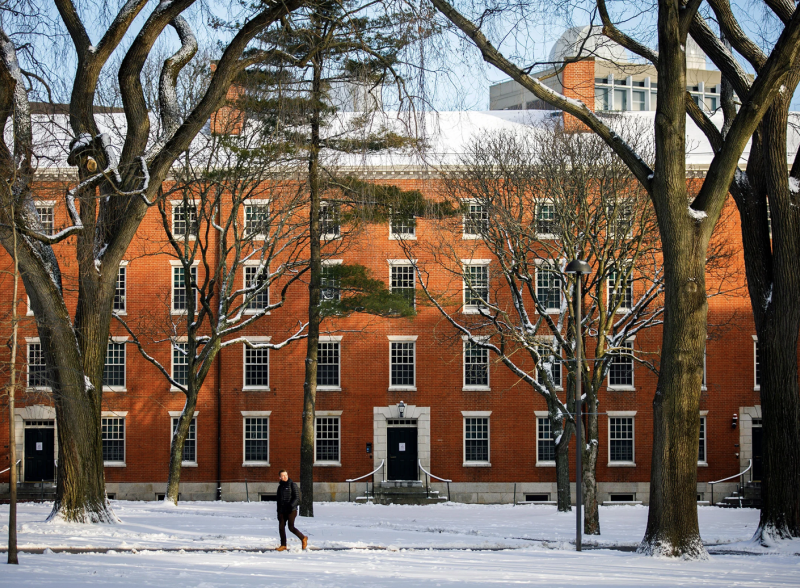Article
Dear Harvard College community,
The last few months have been challenging for Harvard. Understandably, we are all still processing last semester's events and former President Gay’s resignation in different ways. As we begin a new term, I hope you will join me in recommitting yourself to the work that brought you to Harvard and the reason you were invited to come here — your academic pursuits.
Above all, the university is a place to teach and learn, to pursue scholarship and research, to disseminate knowledge, and to encourage pluralistic values. The hallmark of higher education is a commitment to freedom of expression in service of pursuing knowledge and truth. In a university, this freedom comes with the responsibility of being open to debating and dialoguing about important topics. Yet, on this campus, many students and faculty report feeling they cannot express their views. In last year’s senior survey of the Class of 2023, completed by nearly the entire class, only 36% of students reported feeling comfortable expressing opposing views on controversial topics in their courses. Only 44% of graduating seniors reported having expressed opposing views on controversial topics even when they thought it was essential to do so. I have spoken to many faculty, students, and staff members who believe that speaking about controversial topics means risking being ostracized or “canceled” for expressing opinions that do not conform with the perceived consensus on a topic and issue. This environment shuts down learning and growth. I know we can do better.
A commitment to freedom of expression requires the recognition that you will be confronted with ideas you disagree with; in fact, you may hear points of view you loathe. The purpose of a Harvard education is not to shield you from ideas you dislike or to silence people you disagree with; it is to enable you to confront challenging ideas, interrogate your own beliefs, make up your mind, and learn to think for yourself. This spring, I hope you will reflect on the value of open discussion and engage in the intellectual vitality activities announced last week to strengthen our capacity to engage in productive dialogue and to strengthen a culture committed to our core pursuit of Veritas and learning.
It is because of our commitment to the pursuit and transmission of knowledge that we have rules designed to enable academic freedom. Former Yale President A. Bartlett Giamatti described a university’s academic mission as dependent on being both “a free and ordered space.” Order, he argued, is the pre-condition for academic freedom. Without order, there is no space for dialogue and reasoned debate. In universities, as President Giamatti argued, this order comes from a combination of (1) rules about how we engage with each other and protect our academic mission and (2) shared understanding, values, and attitudes that are intellectual in their aims and manifest themselves in collegial behavior.
At Harvard, we have not and will not tolerate actions that undermine our academic mission. Disruptions to classrooms, libraries, laboratories, and other learning spaces are unacceptable. Violations of policies will continue to be referred to the Administrative Board. I encourage you to review the relevant policies posted here.
We are at a critical moment in our University’s history. We must show in word and deed that our university is committed to strengthening our democracy through our embrace of pluralism and tolerance. We must take collective responsibility for protecting the pursuit of truth as we create a better Harvard and a better world.
Semper Veritas,
Rakesh Khurana
Danoff Dean of Harvard College

